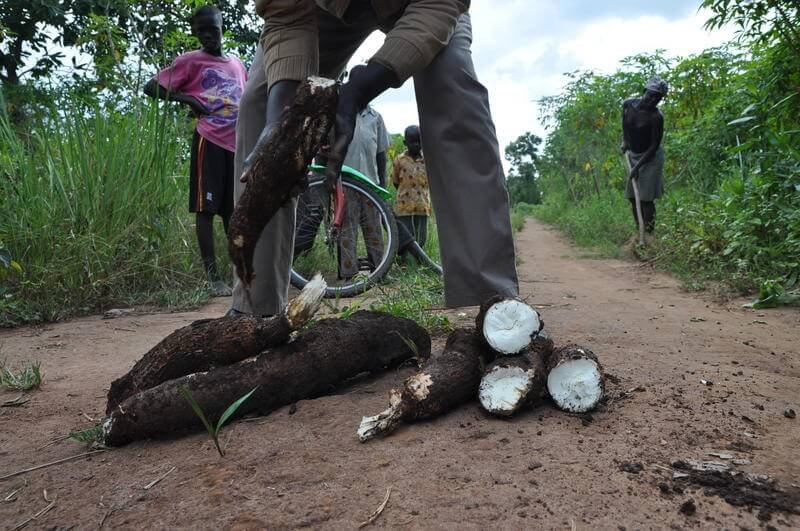To prove that a new-gene editing technology could be used to alter the cassava plant, scientists in the St. Louis suburbs zeroed in on a gene used to process chloroform. Before long, they had petri dishes full of seedlings that were white as chalk.
The plan is to use CRISPR — a cheaper, faster way to genetically modify crops — to grow cassava plants that are resistant to common plant viruses threatening food supplies in East Africa. But regulatory agencies have yet to finalize how they will treat the new crops.
…
[Nigel Taylor, of the Donald Danforth Plant Science Center in Creve Coeur] has spent more than a decade developing strains of cassava that are resistant to brown streak disease and mosaic virus through traditional breeding methods and genetic engineering. Both viruses are spread by whiteflies, a common pest, and can wipe out an entire crop before a farmer knows that a field is contaminated.In conjunction with researchers in Uganda and Kenya, Taylor’s team has distributed traditionally bred cassava to farmers in East Africa and is conducting field trials of genetically modified, virus-resistant strains.
The GLP aggregated and excerpted this article to reflect the diversity of news, opinion and analysis. Read full, original post: In a race to prevent hunger, Danforth researchers use CRISPR to gene-edit cassava































